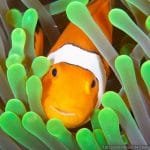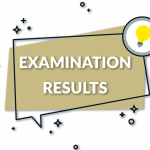Literature Tuition Singapore
Annually, our tutors always help students of all abilities to achieve their academic goals
About 35% of our clients are MOE teachers and university/NIE lecturers. They trust what our tutors teach their own children.
The proven expertise of our carefully-chosen star tutors makes it possible for students' grades to improve between 10 to 30 marks in 2 semesters.
Our 5 co-founders are former senior teachers/HODs from Singapore's top primary/secondary schools and junior college.
We have over 33,000 active and experienced tuition teachers, and will show you tutor profiles within 6 hours.
Literature Tuition Singapore | English Literature Tuition | H2 Literature Tuition | Literature Tutor | Literature Tuition Teacher Singapore
Since 2011, Professional Tutors Singapore has been the consistent leader in the education industry because of the quality of our tutors.
Every year, the syllabus gets more difficult, and the exam requirements are increasingly more demanding.
Competition to get into the good classes and universities is very intense.
Stress levels are sometimes overwhelming, and parents are worried that their children will be left behind or excluded once they get erratic grades.
Professional Tutors has established a very strong reputation for our ability to attract the best and most successful tuition teachers in Singapore to be part of our team.
Outstanding, high-quality and credible tutors make it possible for our students to receive the reliable and effective academic help that they need, in order to perform much better.
Our 33,000 qualified tutors have 2 clear objectives:
1. Dependably and systematically prepare you for your next assessment/exam
2. Quickly and competently help you score maximum marks for each exam section
Take Control Of Your Grades Today
Primary School Tuition
Secondary School Tuition
Integrated Programme Tuition
International Baccalaureate Tuition
Junior College Tuition
Polytechnic Tuition
University Modules Tuition
Literature Tuition Singapore | English Literature Tuition | H2 Literature Tuition | Literature Tutor | Literature Tuition Teacher Singapore
Hire Singapore's Most Successful Tuition Teachers
Literature Tuition Singapore | English Literature Tuition | H2 Literature Tuition | Literature Tutor | Literature Tuition Teacher Singapore
Tutors: Please ensure that you have registered at: https://professional-tutors.com/tuition-jobs-better-assignments-fast/
We are not able to accept any tutor registrations through this Hire Tutors Form. Thank you.
Literature Tuition Singapore | English Literature Tuition | H2 Literature Tuition | Literature Tutor | Literature Tuition Teacher Singapore
We are confident that you will succeed
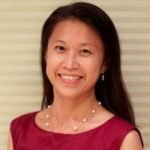
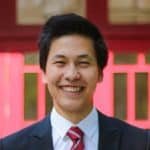



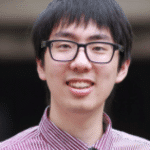

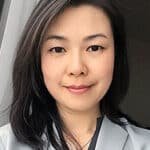
Singapore's largest team of qualified tutors
- Choose from MOE teachers, experienced tuition teachers with PhD/Master’s/Bachelor’s, or who are proficient university undergraduates
- Whether your dream is to start your own business, or to work for a prestigious MNC – the most important and useful immediate objective would be to receive the best academic guidance now, so that your grades can open many more important doors for you
- Annually, our tutors always help students of all abilities to achieve their academic goals
Satisfied clients every year since 2011
- Students benefit from our experience, quality tuition teachers, track record, and superior reputation
- Within 6 hours, our 20+ resourceful tuition coordinators (all of them have graduated from NUS, NTU and SMU) ensure that you can easily choose and hire the ideal tutor that fits your criteria
- 100% successful matches. Every time
- No agency fees. You pay only for lessons conducted
Literature Tuition Singapore | English Literature Tuition | H2 Literature Tuition | Literature Tutor | Literature Tuition Teacher Singapore
Proven methods to score higher grades
- Our private tutors show you the important patterns and links in each chapter, and how to answer challenging application questions
- We teach you why and how to focus on the most crucial aspects of textbook content
- You will learn correct answering techniques so that your responses are specific and never off-point
- Practice worksheets/past exams with an acknowledged expert, so that your mistakes can be quickly and patiently corrected
Latest MOE syllabus, and exam marking scheme requirements
Our experienced and committed tutors will help you:
- Answer difficult exam questions
- Correctly prepare for your homework/projects
- Understand and revise every chapter
- Learn ahead of the syllabus
- Identify, avoid and prevent careless mistakes
Literature Tuition Singapore | English Literature Tuition | H2 Literature Tuition | Literature Tutor | Literature Tuition Teacher Singapore
We have the education industry's most admired tutor database
- Tutors know that we are very careful and highly selective during the matching process
- We do not accept under-performing tutors in our team/database
- Professional Tutors therefore attracts tuition teachers who have already acquired and maintained an impressive track record of helping their students’ grades consistently and substantially improve
Our 5 co-founders collectively have over 70 years of experience in the field of education
- Also, our Advisory Panel comprises former MOE school principals, subject Heads of Department, and senior teachers
- This ensures that our tutors are firmly on track to teach the latest MOE syllabus, and are familiar with the exam requirements and marking schemes, as well as the requisite answering techniques
Literature Tuition Singapore | English Literature Tuition | H2 Literature Tuition | Literature Tutor | Literature Tuition Teacher Singapore
Critical thinking is very important to obtaining strong overall analytical skills.
Effective critical thinkers are able to think clearly and rationally and understand the logical relations between data points and ideas.
Data and content form the core of the essence of what you need to learn for your exams.
You need to identify patterns in the data and content that are given in your text books, and also to correctly convey your analysis of the data to exam markers, in order to earn crucial exam marks.
In every exam/assessment that we take from P1 to post-doctoral level – and especially once we start working after graduation – we need to objectively analyze complex problems to form a judgment and the best response to make.
When you want to arrive at rational answers, critical thinking is a very important skill to master.
There are a few different types of logical thinking, including:
- Inference: Assuming an answer based on facts we already know
- Inductive reasoning: Observing a specific pattern, then making a general conclusion
- Deductive reasoning: Observing a general premise, then applying it to a specific situation
Are you an analytical thinker?
An analytical thinker is a person driven by curiosity to get to the bottom of things and is then able to solve a problem or find an answer.
They do not assume anything about the problem at hand.
Instead, they begin by questioning everything about the issue.
You can start to develop these good analytical thinking habits listed below (some, but not all of these qualities may be found in a person with an analytical nature):
- Search for information and evidence.
- Analytical thinkers will find and evaluate every bit of information they can accumulate on a particular subject or challenge before arriving at a decision
- Develop logical and systematic processes.
- Rarely will an analytical thinker be swayed by emotion.
- Usually, this individual will use linear thinking to arrive at a sound, sensible, well-thought-out conclusion.
- Logical thinkers tend to embrace structure and rules.
- Most analytical thinkers like to work in a well-organized way.
- When you are organized, you will be thorough in your work and never miss out on important information that needs to be reviewed and considered.
- For example, if you develop a keen interest in an area, you’ll make sure you learn as much as possible about that field and become an expert.
- This is the kind of professionalism and attention to detail that businesses (and your exam markers) are looking out for.
- Start having routines in your daily life.
- Analytical thinkers enjoy routines and have steady, established habits.
- They prefer to know what and when something is going to happen. Daily life is often based around routines.
- They have an innate ability to concentrate, which means they usually like to work independently or in small teams.
- Develop sharp memory skills.
- It is common for an analytical thinker to thrive on learning new information – and once learned, that information is never forgotten.
- Analytical thinkers have exceptional memories, although they can opt to forget information that they do not consider critical to solving their current problem.
- Analytical thinkers can also be curious and observant.
- Get in the habit of asking “how?” and “why?”.
- They tend to be modest: it’s difficult to be curious and observant when one is arrogant and thinks that he/she already knows everything.
- You can consciously observe and analyze your surroundings.
- When you are highly perceptive, your mind is geared towards taking a bird’s eye view of things which enables you to consider the whole picture.
- This also means that you’ll be able to visualize how parts of a project fit together.
- You’ll be in a better position to foresee and predict how minor changes and adjustments can affect the outcome and make astute decisions.
- Get in the habit of forcing yourself to analyze seemingly obvious truths about the world.
- When you are always prepared and can handle risk well, it becomes highly unlikely that you will be shocked when faced with problematic situations.
- Your preparedness and risk management skills will help you ensure that you have predicted any potential threats to being able to answer difficult exam questions, and are already prepared with a plan of action.
- Analytical thinkers are known for spotting problems from far away, and being ready to meet challenges head-on.
If you can identify with the qualities above and prefer strategy and creativity over socializing and networking, chances are you’re an analytical thinker.
Whether you struggle with analytical thinking or seem to have natural analytical abilities, you can always improve your skills.
Visualization, creativity, and having a growth mindset – the ability to embrace new technologies and upgrade skills – are key to the analytical thinker’s success jobs that pay high salaries.
Analytical skills are used when detecting patterns and trends, brainstorming new ideas, observing data, collecting data, interpreting data, integrating new information, synthesizing information, and making decisions on what solutions to implement in a productive manner.
Analytical skills refer to a person’s ability to assess relevant information and facts, identify and define complex problems, investigate and extract crucial information from data, and find the best workable solutions to these problems.
According to LinkedIn, they are one of the top 10 most in-demand soft skills that employers always look for.
Analytical skills are highly transferable, making the analytical thinker an ideal fit for a variety of career fields.
The analytical thinker’s breadth and versatility of skills are the primary reason why employers look for this coveted trait.
Analytical and critical thinking skills allow employees to adapt and respond to new obstacles.
Company success often depends on employees who can efficiently and effectively analyze the vast amounts of data and information in the digital age.
Logical decision makers use fact-based, hard evidence to support their decisions and plans.
They arrive at their decisions after factoring every aspect of a situation and utilizing the best means of achieving the most optimal solution.
This results in successful outcomes because of the quality of decisions that they are able to make.
Companies that employ skilled analytical thinkers are better able to adapt and respond to new market conditions as well.
Accordingly, analytical skills show up frequently as a required quality in job descriptions.
For example, a sales job description may list qualitative analysis or predictive analysis as requirements.
Developing strong analytical skills is therefore vital to anyone who wants to succeed in their school/national exams and then when they start their careers.
You have to write analytically when you answer exam questions.
Analytical essays (even if they are only a few sentences long) provide a way to share your insights that provide substantive analysis of a topic.
A good analytical essay can explain and contextualize basic information for the exam marker.
Analytical responses serve two purposes: one for the reader and one for the writer.
Your exam marker wants to know how you have grown as a writer and thinker.
Your ability to write analytically will convince the exam marker that you have a strong grasp over the content that the question is testing you on.
What sets an analytical essay apart from a descriptive answer is the author’s point of view.
Analytical essays present an argument supported by evidence, whereas descriptive essays tend to be book summaries, film synopses, descriptive articles, and informative pamphlets that do not include analysis or opinion.
Similar to a good analytical essay, a strong descriptive essay will highlight its main points, organize given topics into body paragraphs, and use logical transitions.
Ultimately, however, descriptive essays summarize facts, while analytical essays delve into interpretation.
The best analytical essays offer a clear point of view, are well organized around a main idea, address opposing arguments, and are comprehensively supported by primary and secondary sources.
- You should start by choosing a point of view.
- No matter what you choose as your central point of view, you must be able to anchor your entire analytical essay around a singular thesis statement/point of view.
- Your introductory paragraph has to state your point of view.
- An excellent introduction will grasp your reader’s interest. It is therefore important that you take extra care in your opening paragraph.
- Good ways to start your essay would with a hook such as a bold statement.
- You should then provide a broad outline that addresses questions that the exam questions requires you to tackle.
- A good introduction concludes with a thesis statement that serves as the compass (ie “GPS”) for the entire essay.
- You then need to carefully organize the body of your essay.
- After your introductory paragraph, divide your essay into body paragraphs that dig deep into specific topics.
- All body paragraphs should serve the main goal of supporting your thesis statement, either by providing background information, delving into details, or providing contrasting viewpoints that each substantiate themselves.
- The number of body paragraphs will vary depending on the scope and length of your essay that the exam questions require from you.
- The structure of your essay is just as important as the subject of your essay, so do take the time to strategically plan each body paragraph.
- Your topic sentences must be clearly crafted.
- Each main body paragraph should begin with a topic sentence that both introduces the topic of the that specific paragraph, and then ties it to your main thesis.
- Populate your essay with evidence that is directly related to the exam question. Do not ramble or go off-point.
- The main body of the essay should be filled with a mixture of substance and analysis.
- You can convince your exam marker to give you higher marks only when you are able to provide solid evidence to back up your statements and point of view.
- Therefore, you must support the main points of your analysis with evidence taken from your textbooks or the research that you had previously conducted on this subject.
- You can make an argument stronger by acknowledging another point of view.
- Even if you do not agree with a critical perspective, you can still use a body paragraph to describe that point of view.
- You can then refute that argument with additional evidence and reasoning, strengthening your thesis/position on that issue.
- The summary is also very important.
- Wrap up your analytical essay with a concluding paragraph that recaps your argument.
- The concluding paragraph is not the place to introduce new evidence.
- Rather, it is the ribbon that you wrap around your entire essay, reminding your reader of your most important points and leaving them with some final convincing words for consideration of your point of view.
Perseverance means continuously working on a task despite having obstacles.
It means being hardworking and finishing what is started, even when barriers and problems arise.
Perseverance is an essential leadership skill.
It is more than just not giving up.
When you’re in a leadership role, perseverance is more of a problem-solving process that includes encountering a challenge, understanding why the challenge exists, finding a way to overcome the challenge and, above all, learning from the entire experience.
It is often what separates those that achieve success, and prevents disappointment for themselves and their team.
The satisfaction received from completing tasks and projects is very important to those who are able and want to persevere.
It means the willpower to work hard regardless of any obstacles, to be firm on achieving, and remaining consistent.
Sometimes we are unable to complete a task or get what we want when things don’t go our way.
However, by persevering, we can have better prospects of being successful.
Everyone who takes an idea and makes it into something valuable does it through hard work.
Tied very closely to hard work is perseverance, continuing forward without regard to discouragement, opposition, hurdles, or memories of previous failure.
Ultimately, perseverance is about being confident in your abilities and trusting that you’ll find a way through, if you persist.
Don’t be afraid to fail.
Perseverance comes from failing and getting back up.
Without failure, we cannot become resilient.
Therefore, we have to think of failure as a lesson, rather than a setback.
We can learn so much from failure that changing our attitude toward it can have amazing implications for our lives.
When we aim to be 1% better every day, we develop a growth mindset that is a great way to increase perseverance and motivation.
These are skills like any other types of talents that you want to develop, and try to improve upon them just 1% every day.
Keeping this concept in mind throughout the day is an excellent way to motivate ourselves.
Have you heard of the 40% Rule?
This Rule means that if you manage to complete 40% of the task, your likelihood of quitting drops dramatically.
So, work toward completing 40% of the task. Then the rest of the 60% is not that difficult/intimidating to complete.
Keep your goals in mind.
When we make mistakes or fail, many people will be tempted to give up altogether.
If we want to persevere, we need to keep our goals in mind at all times.
Start by writing down your short and long-term goals and place them somewhere that’s easy to access.
Ask yourself why you have chosen and then embarked on a certain goal.
Reflecting on that reminds us that the journey is worth our time.
Then, whenever there’s any discouraging event or comment, take a look at that list to inspire you and keep you moving forward.
Success can be a long and tough journey.
We should give ourselves rewards or encouragement along the way to the major goals.
The rewards can be anything from having a nice lunch, extra hours spent at the park, or a weekend break.
The rewards will keep reminding you of the progress you have made, and will provide continued motivation to persevere through difficult times.
The people who become successful are not the ones who are the most talented.
It’s the ones with the most endurance.
Whether the skill of perseverance comes easily to you or not, the best part is that there are so many ways for us to develop our mental resilience, which then helps our grades get better.
Self-motivation is the force that keeps pushing us to go on – it’s our internal drive to achieve, produce, develop, and keep moving forward.
When you think you’re ready to quit something, or you just don’t know how to start, your self-motivation is what pushes you to go on.
By setting a goal – anything from scoring 10 more marks for Maths, avoiding careless mistakes, or paying more attention in class – you are taking a big step toward improving your life.
However, following through to achieve what we’ve set out to accomplish can be challenging, especially on those days when our energy levels are low and we just don’t feel like putting in the work.
We all lose motivation from time to time.
When you’re feeling unmotivated, try one of these science-backed strategies to get yourself back on track toward your goal.
- Put your goal on the calendar and give yourself target dates. Whatever it is you’re aiming to accomplish, put the timelines on the calendar.
- If your goal lacks this structure, you can include it in your calendar by deciding on a date by which you could realistically achieve your goal.
- Having a target date not only helps you stay motivated, it also helps you track your progress – you always know how much further you have to go and how much you have already achieved.
- You can also draw a progress bar on a piece of paper that you can stick in front of your study area.
- Look at it regularly and fill it in as you get closer to your goal.
- This can have a big impact on your performance and determination to succeed.
- Set small goals that lead toward the main goal, in order to build momentum.
- Getting started is often the hardest part on low-motivation days, and starting is much easier when the task is small. Begin with five minutes of study first, then work your way up to an hour a day etc.
- Track your progress. Not every day will go exactly as planned, and that’s okay.
- We can’t predict everything that could happen, but we can predict some obstacles that are likely to happen from time to time based on our unique circumstances.
- Then when that obstacle pops up, instead of losing motivation and feeling deflated, you have a plan in place to keep the momentum going.
- Practice gratitude for every tiny step that you are making toward your small goals and eventual big goals.
- Research shows that frequent small successes can build a momentum that can in turn drive long-term success, especially early in the process.
- Whatever your big goal may be, start by breaking it down into smaller chunks, and it will be easier to achieve most or all of them.
- Reward yourself for the little wins as well as the big ones. Rewards can improve motivation and performance.
- Rewarding yourself for reaching small milestones and completing big goals could boost your interest and enjoyment in the work you’re doing.
- Spend a few minutes making your own reward list so that you’re ready to celebrate your wins, big and small.
- Improve your mood and mental health.
- A good mood has been linked to increased productivity, and improvement in both quality and quantity of our work.
- This doesn’t mean that you have to be positive all the time – being chirpy every minute of every day is not realistic.
- But if you’re feeling sluggish about working toward your goal, a quick mood lift could be enough to get you started.
- Having a change of your environment can help you approach your task with a fresh perspective (and a new sense of motivation).
- This is called the novelty effect – a short-term boost that comes from altering your environment or routine.
- Spend some time in nature (or at least get some sunlight while taking a nice walk around the neighbourhood).
- Try a different exercise routine.
- Watch funny videos on TikTok or YouTube.
Good ways to further motivate yourself would be to ask yourself:
- Why is this goal important to you?
- Why is that reason important to you?
Keep thinking about these until you get to your ultimate “why” – which is the core value that’s driving your goal.
What would it feel like to achieve your goal?
You know that it will feel great, and that promise of your happiness and sense of achievement will keep you focused on wanting to continue to do well.
Take control of your Literature grades today
33,000 experienced private tutors
MOE teachers, tutors with proven track records,
PhD/Master's/Post-Doctoral tutors,
Graduated/Undergraduate dependable tutors
Mr DC has 13 years of Literature tuition experience. He has a Ph.D. in Comparative Literature from Cornell University, and a Bachelor’s in Literature from NUS (First Class Honours). His home tuition students attended Catholic High School, Anglican High School, Cedar Girls’ Secondary School, Jurong Pioneer Junior College, River Valley High School, and Anglo-Chinese Junior College.
Ms WKP has 14 years of Literature tuition experience. She has a Bachelor’s in Literature from NTU. Ms WKP taught at a tuition centre for 4 years. Her private tuition students attended Kuo Chuan Presbyterian Secondary School, Hwa Chong Institution (Integrated Programme), East View Secondary School, Anderson Serangoon Junior College, National Junior College, and Tampines Meridian Junior College.
Mr GS has 8 years of Literature tuition experience. He has a Bachelor’s in Literature from NUS. He taught at a tuition centre for 5 years. Mr GS’s private tuition students attended Bartley Secondary School, CHIJ St Nicholas Girls’ School, New Town Secondary School, Riverside Secondary School, Catholic Junior College
Literature Tuition Singapore | English Literature Tuition | H2 Literature Tuition | Literature Tutor | Literature Tuition Teacher Singapore
Mr FS has 10 years of Literature tuition experience. He has a Bachelor’s in English language and English Literature from NUS (First Class Honours). Mr FS wrote the Literature curriculum taught at secondary school level and at JC level for the tuition centre where he taught for 6 years. His private tuition students attended Crescent Girls’ School, Methodist Girls’ School (Secondary), Montfort Secondary School, Nanyang Junior College, Hwa Chong Institution, and Victoria Junior College.
Ms TA has 6 years of Literature tuition experience. She is NIE-trained and taught at a junior college for 7 years. Ms TA has a Bachelor’s from NUS, majoring in English Literature (Honours). Her private tuition students attended National Junior College, Raffles Institution, Catholic Junior College, Anglo-Chinese Junior College, Temasek Junior College, and St. Andrew’s Junior College.
Literature Tuition Singapore | English Literature Tuition | H2 Literature Tuition | Literature Tutor | Literature Tuition Teacher Singapore
Ms DC has 7 years of Literature tuition experience. She was an MOE contract teacher for 2 years. Ms DC has Master’s in Linguistics from NUS, and a Bachelor’s in English and English Literature from NUS (2nd Upper Class Honours). Ms DC’s home tuition students attended Crescent Girls’ School, Anglo-Chinese School (Independent), CHIJ St Theresa’s Convent, Eunoia Junior College, Hwa Chong Institution, and Victoria Junior College.
Hire the best Literature experts to help you succeed
A committed and skillful Literature home tutor can make an important difference in how you understand the syllabus, and therefore achieve gains of 10 to 30 marks within 2 semesters
Mr WK has 4 years of Literature tuition experience. He has a Bachelor’s from NTU in Literature (Honours). He taught at tuition centres for 4 years and was an MOE contract teacher for 2 years. Mr WK’s private tuition students attended St. Margaret’s Secondary School, Yuan Ching Secondary School, Victoria School (Integrated Programme), Deyi Secondary School, Anderson Serangoon Junior College, Catholic Junior College, and River Valley High School.
Ms PM has 10 years of Literature tuition experience. She has a Bachelor’s in Literature from NUS (Honours). Ms PM wrote the O Level and A Level Literature curriculum for a major group of tuition centres. Her home tuition students attended Fairfield Methodist School (Secondary), Raffles Girls’ School (Secondary), St. Hilda’s Secondary School, National Junior College, St. Andrew’s Junior College, and Hwa Chong Institution.
Mr CS has 3 years of Literature tuition experience. He has a Bachelor’s in Literature from NTU. Mr CS was an MOE contract teacher for 1 year. His private tuition students attended Dunman High School, Crescent Girls’ School, Christ Church Secondary School, Ping Yi Secondary School, Ngee Ann Secondary School, and Singapore Chinese Girls’ School.
Mr RF has 6 years of Literature tuition experience. He has a Master’s in British literature from Fordham University (New York, NY). Mr RF has a Bachelor’s in Literature from NUS (Honours). He taught at a leading tuition centre for 6 years. Mr RF’s home tuition students attended St. Anthony’s Canossian Secondary School, Victoria Junior College, Anglo-Chinese Junior College, National Junior College, Dunman High School, and Eunoia Junior College.
Ms NLS has 5 years of Literature tuition experience. She has a Bachelor’s in Literature from NTU (Honours). Her private tuition students attended Seng Kang Secondary School, Ahmad Ibrahim Secondary School, Anglo-Chinese School (Independent), Yishun Innova Junior College, Jurong Pioneer Junior College, and River Valley High School.
Ms AM has 13 years of Literature tuition experience. She is NIE-trained and taught at MOE schools for 7 years. Ms AM’s Bachelor’s in Literature was from NUS. Her students attended Maris Stella High School, CHIJ Secondary (Toa Payoh), National Junior College (Integrated Programme), Raffles Girls’ School (Secondary), St. Andrew’s Secondary School, and St. Joseph’s Institution.
Ms BP has 9 years of Literature tuition experience. She has a Master’s in Comparative Literature from Cornell University. Ms BP’s Bachelor’s in Literature was from NUS (First Class Honours). Ms BP’s private tuition students attended Catholic Junior College, National Junior College, Raffles Institution, Tampines Meridian Junior College, St. Andrew’s Junior College, and Raffles Institution.
Mr NST has 4 years of Literature tuition experience. He has a Bachelor’s from NTU, majoring in Literature (Honours). Mr NST taught at a tuition centre for 2 years. His private tuition students attended Greenridge Secondary School, Methodist Girls’ School (Secondary), Pasir Ris Secondary School, Yishun Innova Junior College, Anglo-Chinese Junior College, and Nanyang Junior College.
Mr WH has 10 years of Literature tuition experience. He has a Bachelor’s in Literature from NUS (Honours). Mr WH taught at tuition centres for 5 years. His home tuition students attended Woodlands Secondary School, Temasek Junior College (Integrated Programme), St. Joseph’s Institution, Jurong Pioneer Junior College, River Valley High School, and Hwa Chong Institution.
Ms ST has 8 years of Literature tuition experience. She is NIE-trained and taught at an MOE school for 8 years. Ms ST has a Bachelor’s in Literature from NUS. Her home tuition students attended Bedok View Secondary School, Hong Kah Secondary School, Maris Stella High School, Singapore Chinese Girls’ School, Tanjong Katong Girls’ School, and Zhonghua Secondary School.
Mr YYL has 5 years of Literature tuition experience. He has a Bachelor’s in Literature from NTU. Mr YYL was an MOE contract teacher for 2 years. His private tuition students attended Chong Boon Secondary School, Hai Seng Secondary School, Montfort Secondary School, Nanyang Junior College, Tampines Meridian Junior College, and St. Andrew’s Junior College.
Ms VC has 12 years of Literature tuition experience. She has a PhD in Linguistics from the Massachusetts Institute of Technology (MIT). Her Bachelor’s was from NUS, in Literature (First Class Honours). Ms VC’s private tuition students attended CHIJ St Nicholas Girls’ School, Cedar Girls’ Secondary School, Methodist Girls’ School (Secondary), Hwa Chong Institution, Eunoia Junior College, and Anglo-Chinese Junior College.
Ms PA has 13 years of Literature tuition experience. She has a Bachelor’s in Literature from NUS (2nd Upper Class Honours). Ms PA’s private tuition students attended Victoria School (Integrated Programme), St. Patrick’s School, Punggol Secondary School, New Town Secondary School, Catholic Junior College, and River Valley High School.
Mr WTK has 6 years of Literature tuition experience. He has a Bachelor’s in Literature from NTU. His home tuition students attended Ang Mo Kio Secondary School, Bowen Secondary School, Jurong Pioneer Junior College, Dunman High School, Tampines Meridian Junior College, and St. Andrew’s Junior College.
Ms GS has 9 years of Literature tuition experience. She has a Bachelor’s in Literature, from NTU. Her private tuition students attended Hai Seng Secondary School, Dunman Secondary School, Crescent Girls’ School, CHIJ St Theresa’s Convent, Ahmad Ibrahim Secondary School, and Bishan Park Secondary School.
Mr CWC has 9 years of Literature tuition experience. He has a Bachelor’s in Literature from NUS (2nd Upper Class Honours). Mr CWC was the Head of Literature at the group of tuition centres that he taught at for 5 years. Mr CWC’s private tuition students attended St. Margaret’s Secondary School, Serangoon Secondary School, Nan Hua High School, Eunoia Junior College, Temasek Junior College, and Anderson Serangoon Junior College.
Ms SE has 6 years of Literature tuition experience. She is NIE-trained and taught at a junior college for 7 years. Ms SE has a Bachelor’s in Literature from NUS (Honours). Her home tuition students attended Eunoia Junior College, Hwa Chong Institution, St. Andrew’s Junior College, Tampines Meridian Junior College, Anderson Serangoon Junior College, and Jurong Pioneer Junior College.
Ms MH has 3 years of Literature tuition experience. She has a Bachelor’s in Literature from NTU. Her private tuition students attended St. Hilda’s Secondary School, Teck Whye Secondary School, Whitley Secondary School, Tanjong Katong Girls’ School, St. Patrick’s School, and Queenstown Secondary School.
Mr FSK has 15 years of Literature tuition experience. He has a Bachelor’s in Literature from NUS (Honours). Mr FSK taught at tuition centres for 6 years. His home tuition students attended Nanyang Girls’ High School, Paya Lebar Methodist Girls’ School (Secondary), Nan Hua High School, St. Andrew’s Junior College, Catholic Junior College, and Jurong Pioneer Junior College.
Ms LO has 10 years of Literature tuition experience. She has a Bachelor’s in Literature from NUS. Ms LO’s private tuition students attended Yuying Secondary School, Kranji Secondary School, Raffles Girls’ School (Secondary), National Junior College, Tampines Meridian Junior College, and Eunoia Junior College.
Ms VH has 8 years of Literature tuition experience. She has a Master’s and Bachelor’s (2nd Upper Class Honours) in Literature from NUS. She taught at a top tuition centre for 5 years. Ms VH’s private tuition students attended Hong Kah Secondary School, National Junior College (Integrated Programme), Northbrooks Secondary School, St. Andrew’s Junior College, Nanyang Junior College, and Anderson Serangoon Junior College.
Mr CS has 3 years of Literature tuition experience. He has a Bachelor’s in Literature from NTU (First Class Honours). Mr CS was an MOE contract teacher for 1 year. His private tuition students attended Guangyang Secondary School, Fairfield Methodist School (Secondary), Coral Secondary School, CHIJ St Joseph’s Convent, Xinmin Secondary School, and Temasek Secondary School.
Mr HG has 5 years of Literature tuition experience. He is NIE-trained and taught at an MOE school for 4 years. Mr HG has a Bachelor’s in Literature from NUS (Honours). His private tuition students attended Peirce Secondary School, Nanyang Girls’ High School, Methodist Girls’ School (Secondary), Loyang Secondary School, Greenridge Secondary School, and First Toa Payoh Secondary School.
Ms TM has 8 years of Literature tuition experience. She has a PhD from Stanford University in Linguistics. Her Bachelor’s in Literature was from NUS (First Class Honours). Ms TM’s home tuition students attended Cedar Girls’ Secondary School, Anglo-Chinese School (Independent), Catholic High School, Hwa Chong Institution, St. Andrew’s Junior College, and Victoria Junior College.
Ms DK has 6 years of Literature tuition experience. She has a Bachelor’s from NTU, majoring in Literature. Ms DK’s home tuition students attended Loyang Secondary School, Compassvale Secondary School, Anglo-Chinese School (Independent), Eunoia Junior College, Victoria Junior College, and Jurong Pioneer Junior College.
Ms BW has 12 years of Literature tuition experience. She has a PhD in Applied Linguistics at the University of Edinburgh. Ms BW has a Bachelor’s in Literature from NUS (2nd Upper Class Honours). She was an MOE contract teacher for 4 years. Her private tuition students attended Holy Innocents’ High School, CHIJ St Nicholas Girls’ School, Dunman High School, Hwa Chong Institution (Integrated Programme), Anglo-Chinese Junior College, and Raffles Institution.
Mr JA has 9 years of Literature tuition experience. He has a Bachelor’s in Literature from NUS. Mr JA’s private tuition students attended Swiss Cottage Secondary School, Presbyterian High School, Nanyang Girls’ High School, Catholic Junior College, River Valley High School, and Temasek Junior College.
Ms ML has 8 years of Literature tuition experience. She has a Master’s in Literary Studies from NTU. Her Bachelor’s in Literature was from NUS (Honours). Ms ML’s private tuition students attended St. Margaret’s Secondary School, River Valley High School, Outram Secondary School, Hwa Chong Institution, Temasek Junior College, and St. Andrew’s Junior College.
Ms CKS has 6 years of Literature tuition experience. She has a Bachelor’s in Literature from NTU. Ms CKS was an MOE contract teacher for 2 years. Her private tuition students attended Hwa Chong Institution (Integrated Programme), Fuhua Secondary School, Fajar Secondary School, Jurong Pioneer Junior College, Anderson Serangoon Junior College, and National Junior College.
Mr TWS has 13 years of Literature tuition experience. He has a Bachelor’s in Literature from NUS. Mr TWS’s private tuition students attended Beatty Secondary School, CHIJ Katong Convent, Crescent Girls’ School, Anglo-Chinese Junior College, National Junior College, and Yishun Innova Junior College.
Ms NC has 12 years of Literature tuition experience. She has a Bachelor’s in Literature from NUS (Honours). Her private tuition students attended Mayflower Secondary School, Orchid Park Secondary School, Raffles Girls’ School (Secondary), Anglo-Chinese Junior College, Victoria Junior College, and Nanyang Junior College.
Ms KWB has 10 years of Literature tuition experience. She has a Bachelor’s in Literature from NUS (Honours). Ms KWB was an MOE contract teacher for 2 years. Her home tuition students attended Yishun Town Secondary School, Temasek Junior College (Integrated Programme), St. Hilda’s Secondary School, Tanjong Katong Girls’ School, St. Gabriel’s Secondary School, and Damai Secondary School.
Mr HTK has 6 years of Literature tuition experience. He has a Bachelor’s in Literature from NTU. Mr HTK’s private tuition students attended Evergreen Secondary School, Commonwealth Secondary School, Fairfield Methodist School (Secondary), National Junior College, Eunoia Junior College, and Tampines Meridian Junior College.
Ms BP has 16 years of Literature tuition experience. She is NIE-trained, and taught at MOE schools for 7 years. Ms BP has a Bachelor’s in Literature from NUS (Honours). Her home tuition students attended Fuchun Secondary School, Cedar Girls’ Secondary School, Anglican High School, Methodist Girls’ School (Secondary), Marsiling Secondary School, and North View Secondary School.
Mr GFW has 5 years of Literature tuition experience. He has a Bachelor’s in Literature from NUS. Mr GFW taught at a leading tuition centre for 3 years. His private tuition students attended Montfort Secondary School, Greendale Secondary School, Crescent Girls’ School, St. Joseph’s Institution, Seng Kang Secondary School, and Yuying Secondary School.
Ms ATS has 5 years of Literature tuition experience. She has a Bachelor’s in Literature from NTU (2nd Upper Class Honours). Ms ATS taught at a tuition centre for 2 years. Her private tuition students attended Regent Secondary School, Hong Kah Secondary School, Maris Stella High School, Fairfield Methodist School (Secondary), Anderson Serangoon Junior College, and St. Andrew’s Junior College.
Mr HP has 8 years of Literature tuition experience. Mr HU was an MOE contract teacher for 2 years. He has a Bachelor’s in Literature from NUS (First Class Honours). His home tuition students attended Anderson Serangoon Junior College, Dunman High School, Nanyang Junior College, Temasek Junior College, Yishun Innova Junior College, and Raffles Institution.
Ms JS has 14 years of Literature tuition experience. She has a Master’s in Linguistics from NUS and a Bachelor’s in English Literature from NTU. Ms JS is NIE-trained and taught at MOE schools for 8 years. Her home tuition students attended Cedar Girls’ Secondary School Integrated Programme, Anglo-Chinese School (Barker Road), Methodist Girls’ School (Secondary) IB programme, St Andrew’s Junior College, Eunoia Junior College, and Hwa Chong Institution.
Mr DC has 11 years of Literature tuition experience. He has a Bachelor’s in Literature from NUS. His private tuition students attended Maris Stella High School, Nanyang Girls’ High School, Jurongville Secondary School, Yishun Innova Junior College, Catholic Junior College, and Raffles Institution.
Our tutors always help students of all abilities to achieve their academic goals
Your Literature tuition teacher will clearly explain to you:
- The Assessment Objectives are inter-related. Candidates’ responses will be assessed holistically on the attainment of these Assessment Objectives in an integrated and meaningful way
- Raise awareness of timeless issues concerning society
- Promote the appreciation of multiple perspectives; and
- Build empathy and global awareness
- Promote heightened appreciation of nuances of language
- Sensitise students to artistic decisions made by writers
- Cultivate metacognitive habits of mind as students pay attention to the impact of language on one’s thoughts and feelings
- Equip students with the skills to convince others of their interpretations, based on sound reasoning with evidence
- Demonstrate, through close analysis, knowledge of the literary texts studied
- Respond with knowledge and understanding to literary texts from the genres of prose, poetry and drama
- Cultivate metacognitive habits of mind as students pay attention to the impact of language on one’s thoughts and feelings
- Equip students with the skills to convince others of their interpretations, based on sound reasoning with evidence
- Demonstrate, through close analysis, knowledge of the literary texts studied
- Respond with knowledge and understanding to literary texts from the genres of prose, poetry and drama
- Dalene Matthee: Fiela’s Child
- Ngugi wa Thiong’o: The River Between
- Elizabeth Wein: Code Name Verity
- Lillian Hellman: The Little Foxes
- Arthur Miller: A View from the Bridge
- William Shakespeare: Macbeth
- Haresh Sharma: Off Centre
- Tennessee Williams: The Glass Menagerie
- Critically analyse and evaluate literary texts
- Appreciate and make informed personal responses to literary texts
- Communicate ideas effectively and persuasively
- Negotiate complexities and ambiguities, being aware of diverse perspectives
- The relationship between texts and their cultural contexts
- The ability to read texts independently
- A love for reading literature.
- Make informed personal and critical responses to the texts, exploring connections between texts where appropriate, and account for their responses
- Demonstrate how the literary context of the text informs their understanding of the text
- Critically analyse and evaluate ways in which writers’ choices of form, structure and language shape meanings
- Clearly communicate the knowledge, understanding and insights appropriate to literary study
- Make informed personal and critical responses to the texts, exploring connections between texts where appropriate, and account for their responses
- Demonstrate how the literary context of the text informs their understanding of the text
- Critically analyse and evaluate ways in which writers’ choices of form, structure and language shape meanings
- Clearly communicate the knowledge, understanding and insights appropriate to literary study
- Test the candidate’s ability to critically compare and evaluate unseen texts and the set texts they have studied with regard to the elective papers
- Ability to identify, compare and critically assess key features of each text
- Appropriate reference to the literary features of the period or topic covered by the paper
- The candidate must organise and present information, ideas and arguments clearly and effectively
- Grammar, punctuation, and spelling will also be taken into account
- Respond to and critically compare two unseen poems
- At least one of the questions will feature a Singaporean poem
- Mary Shelley: Frankenstein (1831 text)
- F Scott Fitzgerald: The Great Gatsby
- Anita Desai: Baumgartner’s Bombay
- Jane Austen: Pride and Prejudice
- Tom Stoppard: Arcadia
- William Shakespeare: Measure for Measure
- George Bernard Shaw: Saint Joan
- Arthur Miller: Playing for Time (stage play version)
- The English Renaissance (1509–1660)
- The Renaissance period was one of ‘rebirth’ of classical ideas and art forms, characterised by the influence of the classics in literature, language, and philosophy, as well as the development of new ideas and art forms
- The Literature that developed during this period was, amongst other things, an artistic engagement with many changes in society such as an increase
- in literacy and the abandonment of a feudal system, and their impact on morality and identity
- The texts are literary explorations of the world of 16th and early 17th century England
- Ben Jonson: selected poems
- Andrew Marvell: selected poems
- Sir Philip Sidney: selected sonnets from ‘Astrophil and Stella’
- Francis Bacon: selected prose
- Thomas Nashe: The Unfortunate Traveller
- Thomas Kyd: The Spanish Tragedy
- Christopher Marlowe: Doctor Faustus
- Thomas Middleton: Women Beware Women
- William Shakespeare: The Tempest
- Explore the relationship between the mind and self as represented in Literature
- Examining the means by which writers offer insight into how consciousness is linked to identity, individuality and social contexts
- Underscores various forms of revelation and discovery
- Sylvia Plath: Ariel
- Elizabeth Jennings: selected poems
- William Wordsworth: The Prelude, Book One & Book Two (1805 version)
- James Joyce: A Portrait of the Artist as a Young Man
- J M Coetzee: Age of Iron
- Pat Barker: Regeneration
- Alan Ayckbourn: Woman in Mind
- Edward Albee: Who’s Afraid of Virginia Woolf?
- William Shakespeare: Hamlet
- The definition of a genre, the individual form of the text and its stylistic features
- An appreciation of how the texts studied relate to the contexts in which they were created, including social, cultural and historical contexts
- Exploration of the ideologies and assumptions in the texts
- The events and ideas that predominated during the period in which these texts were created
- How texts relate to movements in artistic creation at a particular point in time
- The study of literary forms
- A sonnet written by a Romantic poet to have an understanding of the general features of the Romantic movement as well as knowledge of how the sonnet form has developed in Literature in English up to that point
- Proficiency in the use of the English language in both a functional and literary sense
- Elements of style, such as register, figurative language, rhythm and language patterns
- The effects of the use of language to create meaning by writers from the word level right through to discourse levels
- Make informed personal and critical responses to the texts and account for their responses
- Understand and comment on the ways in which the historical and cultural backgrounds of text and author inform the meaning of the text
- Language use at the grammatical, lexical and structural levels
- Analyse and evaluate critically the ways in which writers’ choices of form, structure and language shape meanings
- Communicate clearly knowledge, understanding and insights appropriate to literary study
- Develop an informed personal response
- Make connections between their own ideas and experiences and those in the text
- Reflect critically on the development of their own informed response
- Comment on the ways in which both content and form shape the reader’s response
- Demonstrate knowledge of ways in which a text invites the reader to Respond
- Key social, cultural and historical influences in the creation of texts
- How characters, viewpoints, and situations convey the social conventions, beliefs and attitudes of individuals and groups in a particular society
- Identify and interpret the ideas, viewpoints and values expressed in a text
- Understand literary influences and traditions and the notion of reader, text and author
- Analyse literary form including structure, setting, character, conflict, plot, methods of characterization, themes
- Shakespeare: And What He Hath Left Us
- Andrew Marvell: selected poems
- A Dialogue, between the Resolved Soul and Created Pleasure
- On a Drop of Dew
- The Coronet
- Eyes and Tears
- Bermudas
- A Dialogue between the Soul and Body
- The Nymph Complaining for the Death of Her Fawn
- Young Love
- To his Coy Mistress
- The Unfortunate Lover
- The Gallery
- The Fair Singer
- The Definition of Love
- The Picture of Little T.C. in a Prospect of Flowers
- The Mower against Gardens
- Damon the Mower
- The Mower to the Glowworms
- The Mower’s Song
- The Garden
- Present an evaluative/critical comparison and make connections between two or more texts
- Write effective literary essays to convey their knowledge and understanding of, and insight into the texts
- Use appropriate literary terms in their responses
- Present a clear and coherent argument in support of their ideas
- Ben Jonson: selected poems
- Epigrams – II To My Book
- Epigrams – XIV To William Camden
- Epigrams – XXII On My First Daughter
- Epigrams – XXIII To John Donne
- Epigrams – XXVIII On Don Surly
- Epigrams – XLII On Giles and Joan
- Epigrams – XLV On My First Son
- Epigrams – LXV To My Muse
- Epigrams – LXXVI On Lucy, Countess of Bedford
- Epigrams – XCI To Sir Horace Vere
- Epigrams – XCIV To Lucy, Countess of Bedford, with Mr Donne’s Satires
- Epigrams – XCVI To John Donne
- Epigrams – CI Inviting a Friend to Supper
- The Forest – II To Penshurst
- The Forest – IV To the World
- The Forest – V Song. To Celia
- The Forest – VII Song. That Women are but Men’s Shadows
- The Forest – VIII To Sickness
- The Forest – IX Song. To Celia
- The Forest – XV To Heaven
- Underwoods – V In the Person of Womankind
- Underwoods – VI Another. In Defence of Their Inconstancy. A Song
- Underwoods – VII A Nymph’s Passion
- Underwoods – XVII Epistle to a Friend
- Underwoods – XVIII An Elegy
- Underwoods – XXIII An Ode. To Himself
- Underwoods – XXVIII A Sonnet, to the Noble Lady, the Lady Mary Wroth
- Underwoods – XXIX A Fit of Rhyme against Rhyme
- Underwoods – XLI An Elegy
- Miscellaneous – XV To the Memory of my Beloved, the Author Mr William
- Sonnet 1 ‘Loving in truth, and fain in verse my love to show’
- Sonnet 2 ‘Not at first sight, nor with a dribbed shot’
- Sonnet 3 ‘Let dainty wits cry on the sisters nine’
- Sonnet 4 ‘Virtue, alas, now let me take some rest’
- Sonnet 5 ‘It is most true, that eyes are formed to serve’
- Sonnet 6 ‘Some lovers speak, when they their muses entertain’
- Sonnet 7 ‘When nature made her chief work, Stella’s eyes’
- Sonnet 8 ‘Love, born in Greece, of late fled from his native place’
- Sonnet 9 ‘Queen Virtue’s court, which some call Stella’s face’
- Sonnet 10 ‘Reason, in faith thou art well served, that still’
- Sonnet 11 ‘In truth, O Love, with what a boyish kind’
- Sonnet 12 ‘Cupid, because thou shin’st in Stella’s eyes’
- Sonnet 13 ‘Phoebus was judge between Jove, Mars and Love’
- Sonnet 14 ‘Alas, have I not pain enough, my friend’
- Sonnet 15 ‘You that do search for every purling spring’
- Sonnet 16 ‘In nature apt to like, when I did see’
- Sonnet 17 ‘His mother dear Cupid offended late’
- Sonnet 18 ‘With what sharp checks I in myself am shent’
- Sonnet 19 ‘On Cupid’s bow how are my heart-strings bent’
- Sonnet 20 ‘Fly, fly, my friends, I have my death wound, fly’
- Sonnet 21 ‘Your words, my friend, right healthful caustics, blame’
- Sonnet 22 ‘In highest way of heaven the sun did ride’
- Sonnet 23 ‘The curious wits, seeing dull pensiveness’
- Sonnet 24 ‘Rich fools there be, whose base and filthy heart’
- Sonnet 25 ‘The wisest scholar of the wight most wise’
- Sonnet 26 ‘Though dusty wits dare scorn astrology’
- Sonnet 27 ‘Because I oft, in dark abstracted guise’
- Sonnet 28 ‘You that with allegory’s curious frame’
- Sonnet 29 ‘Like some weak lords, neighboured by mighty kings’
- Sonnet 30 ‘Whether the Turkish new moon minded be’
- Sonnet 31 ‘With how sad steps, O moon, thou climb’st the skies’
- Francis Bacon: selected prose
- The Advancement of Learning (Book 1)
- New Atlantis
- Essays (1625):
- ‘Of Truth’
- ‘Of Death’
- ‘Of Simulation and Dissimulation’
- ‘Of Marriage and Single Life’
- ‘Of Love’
- ‘Of Goodness and Goodness of Nature’
- ‘Of Nobility’
- ‘Of Discourse
Literature Tuition Singapore | English Literature Tuition | H2 Literature Tuition | Literature Tutor | Literature Tuition Teacher Singapore
Hire the correct tuition teacher so that you are battle-ready when you read the Literature exam questions
Literature Tuition Singapore | English Literature Tuition | H2 Literature Tuition | Literature Tutor | Literature Tuition Teacher Singapore
Literature Tuition Singapore | English Literature Tuition | H2 Literature Tuition | Literature Tutor | Literature Tuition Teacher Singapore
Tutors Singapore | Tuition At Home | Singapore Tutor | Tuition Agency In Singapore | Tuition Agent
Tuition Assignments - Choose from over 100+ new daily private tutor jobs
Literature Tuition Singapore | English Literature Tuition | H2 Literature Tuition | Literature Tutor | Literature Tuition Teacher Singapore
Register As A Tutor - Good Rates, Many New Assignments Daily
Literature Tuition Singapore | English Literature Tuition | H2 Literature Tuition | Literature Tutor | Literature Tuition Teacher Singapore
Literature Tuition Singapore | English Literature Tuition | H2 Literature Tuition | Literature Tutor | Literature Tuition Teacher Singapore
Literature Tuition Singapore | English Literature Tuition | H2 Literature Tuition | Literature Tutor | Literature Tuition Teacher Singapore
Parents: Please ensure that you have registered at: https://professional-tutors.com/hire-home-tuition-teachers-improve-top/
We are not able to accept any parent registrations through this Tutor Registration Form. Thank you.

